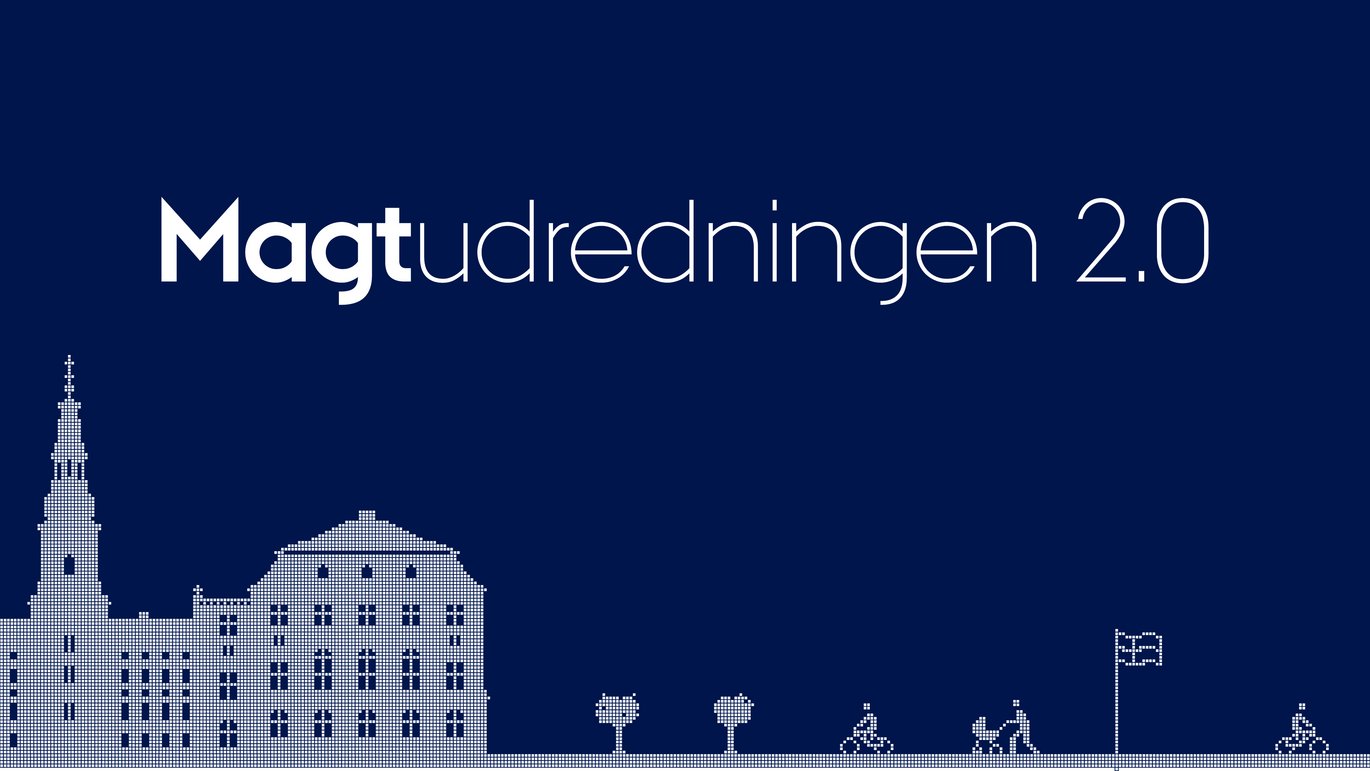Democracy and Power Study 2.0 puts 15 themes under the microscope
The Danish Agency for Higher Education and Science has approved the budget for the Democracy and Power Study 2.0. This makes it clear which areas the research project is to focus on.

Conditions for the work of the Danish Parliament. Local and regional democracy. The power of tech giants.
These are just three out of a total of 15 themes the professors in the research leadership team for the Danish Democracy and Power Study 2.0 have decided to focus on when analysing the situation of Danish democracy up to 2028.
"The budget is smaller than it was when the original democracy and power study was carried out around the turn of the millennium, and this is a challenge. We can’t study everything in the depth we’d like. On the other hand, the research team leadership have focused on broad involvement of the academic environments at Danish universities, and we’ve involved our colleagues in identifying the most important questions and themes that the current update of the democracy and power study should address," says Michael Bang Petersen, head of the research team leadership and professor of political science at Aarhus BSS at Aarhus University.
The Danish Parliament has commissioned the research work and set the framework in the terms of reference for updating the democracy and power study, while the research team leadership has had free hands in the project plan for the democracy and power study 2.0 to decide what specifically should be analysed, and how.
However, the Danish Agency for Higher Education and Science has been tasked with assessing whether the budget meets the requirements for the grant set out in the terms of reference. This has now been done, and so work can begin.
New book series to launch debate on how to future-proof democracy
Initially, the research team leadership will join forces with a large number of colleagues from all over Denmark to gather, update and disseminate the research that already exists within the 15 themes.
"Fortunately, we're not starting from scratch. Danish research into power and democracy has a strong position, so there is already a lot of knowledge we can gather, update and translate into something that can provide the basis for a thorough debate on how we can best future-proof our democracy," says Michael Bang Petersen.
The Democracy and Power Study 2.0 will provide a science-based foundation for debate among both politicians and the public.
The research team leadership is therefore planning to publish a series of short books in 2024-2028. Each book will present the essence of the knowledge that Danish researchers have and will gain within the different themes, and will highlight the challenges and opportunities as researchers see them.
"Each book will be a concentrate of knowledge about a specific theme, such as the role of tech giants, which can hopefully give rise to debate in the media, community centres, government offices and canteens," says Research Director Michael Bang Petersen.
The 15 themes for the Democracy and Power Study 2.0 will be:
- The building blocks for the Democracy and Power Study 2.0: How can democracy, power and legitimacy be understood, and which significant social changes in the 21st century are relevant for an analysis of democracy and power?
- What are the conditions for the work of the Danish Parliament in the 21st century?
- How does the interplay between democratic institutions work in the 21st century?
- What are the conditions for local and regional democracy in the 21st century?
- What political powers do players outside the formal political system have in the 21st century, such as trade unions, civil society organisations, think tanks and lobbying firms?
- What political role do economic resources (controlled by large companies, private foundations and trade and employers' organisations, for example) play in the 21st century?
- What shifts have there been in the balance of power between Danish institutions and international players in the 21st century?
- How is democratic representation ensured in the 21st century?
- To what extent does the public perceive Danish democracy in the 21st century as legitimate – and to what extent are perceptions characterised by mistrust, powerlessness and polarisation?
- How does the public participate in the democratic process and civil society in the 21st century?
- What are the conditions for the meeting between the public and central welfare organisations in the 21st century?
- What role do value-based political lines of conflict, such as religion, climate, freedom of expression and identity politics, play in the public debate?
- What is the importance of public service media and traditional media, such as daily newspapers, for the public debate in the 21st century?
- What impact do tech giants have on Danish democracy?
- How does the use of social media platforms affect the public dialogue between politicians, the media and the public?
The entire project plan, including the budget, is available on www.magtudredningen2.dk.
In addition to Michael Bang Petersen, the research team leadership consists of four other professors:
- David Nicolas Hopmann from the University of Southern Denmark
- Nanna Mik-Meyer from Copenhagen Business School (CBS)
- Lene Holm Pedersen from the University of Copenhagen
- Anne Binderkrantz from Aarhus University